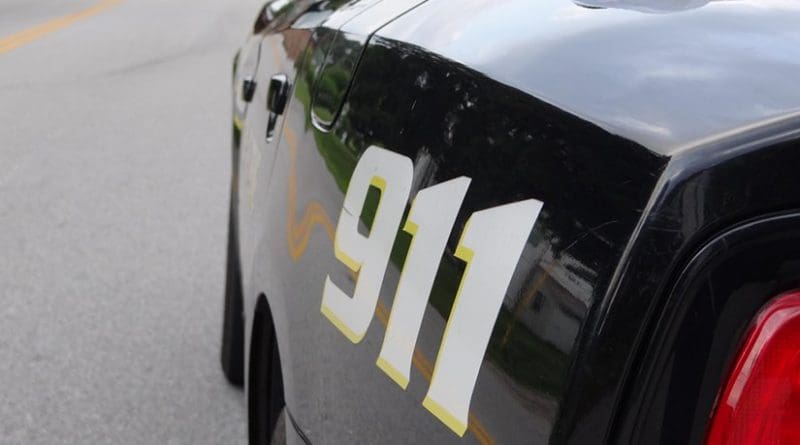Police Shootings Linked To Inaccurate Dispatch Information
A new University of Colorado Denver study examined how information provided in a dispatched call for service influences a police officer’s decision to use deadly force.
The findings show a relationship between inaccurate dispatched information about the presence of a weapon and police shooting errors, especially shootings of unarmed subjects.
Paul Taylor, PhD, assistant professor of criminology in the School of Public Affairs at CU Denver, created a simulation for officers armed with laser guns in which they heard recorded dispatch calls and responded by engaging with a big-screen video of the situation. More than 300 active law enforcement officers participated in this randomized controlled experiment.
“Pre-event information about the presence of a weapon before an officer arrives on scene can have an enormous impact on officer decision-making, and consequently their actions,” said Taylor. “If the information they receive is incorrect, by even the slightest amount, it can drastically increase the likelihood for an error.”
All of the officers listened to a simulated dispatch call for a potential trespass in progress with a description of the subject involved.
- One group of officers received the initial dispatch information. When they later encountered a subject matching the description from the call who rapidly produced a cellphone from his pocket, 28% of the officers shot him.
- A second group of officers listened to the same initial call with an update that said the subject “appeared to be holding a gun.” 62% of the officers in this group shot the subject when he produced a cellphone.
- A third group of officers received the initial dispatch information with an update that said the subject “appeared to be talking on a cellphone.” 6% of officers shot the subject who quickly drew their cellphone out from their pocket.
This is the first study to examine the role of dispatched information in the context of increases in “perception” shooting errors, sometimes called “cellphone shootings,” where officers mistakenly believe the subject involved has a weapon (which generally turns out to be a cellphone or other unharmful object).
Officers shot the subject more than twice as often when the dispatch call stated that the subject “appeared to be holding a gun.” Taylor attributed this to confirmation bias. In the face of uncertainty and time compression, people tend to cling to their initial interpretation or understanding of an event. They actively seek information that confirms that understanding while ignoring disconfirming information at a subconscious level.
“Others have hypothesized that officers will always err on the side of personal safety, but that is not what this research found,” said Taylor. “Instead, officers tended to err on the side of not making an error. When the dispatched information suggested the subject might be armed, they interpreted behavioral cues in that light, but when dispatched information was correct, officer decision-making significantly improved. For these officers, context and pre-event information played a significant role in how they interpreted the subjects’ behavior.”
We need more time
“Having enough time to evaluate a situation before being forced to make split-second decisions is absolutely critical in these sorts of situations,” said Taylor. “Understanding that officers will rely heavily on pre-event information to make decisions and knowing that when that information is incorrect, it will increase the risk of error, is key–it should encourage agencies and officers to use tactics that, when possible and it is not always possible, allow officers more time.”
Taylor’s hope is that by better understanding these processes we can gain insight into underlying weaknesses found in everyday police practice and search for more effective solutions that increase both the safety of officers and the public they serve.
“These are clues, key pieces to the puzzle, about how to make us more resilient against future errors and, ultimately, save innocent lives,” Taylor said.

